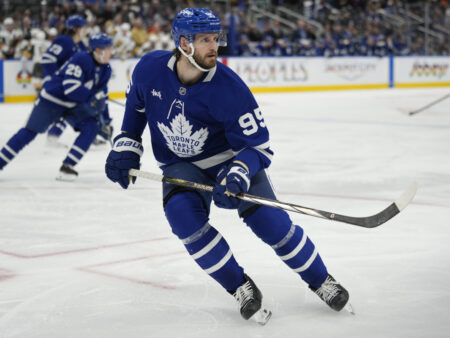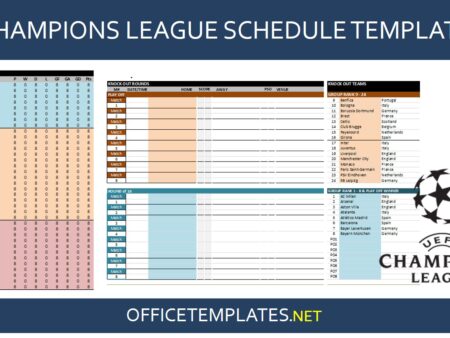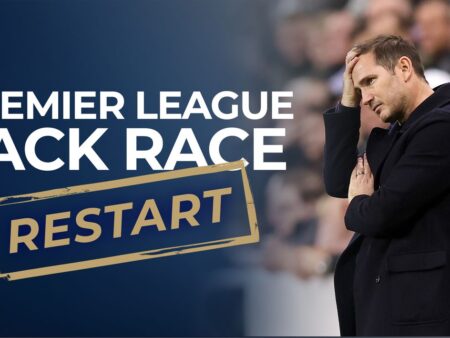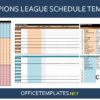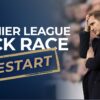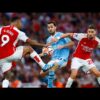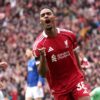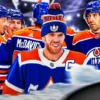The National Basketball Association (NBA) is characterized by dynamic team management, where strategic trades, player signings, and draft selections are crucial for championship contention. Fan engagement with these transactional aspects often rivals their interest in the games themselves.
While some decisions lead to phenomenal success, exemplified by recent champions like the Oklahoma City Thunder and Boston Celtics who leveraged shrewd trades and draft picks to build their core rosters, other moves have resulted in spectacular failures. This article focuses on those missteps, examining the most impactful roster mistakes made by every NBA team since 2020.
Ranked from the least to most detrimental, our assessment considers the long-term repercussions of these decisions, even if they seemed reasonable at the time. The focus is purely on the outcome and severity of each poor choice, rather than the rationale behind them. Let`s delve into the most damaging moves NBA teams have made this decade.
Tier 5: Minor Miscalculations
Cleveland Cavaliers
Biggest mistake: Not retaining Isaiah Hartenstein (2021)
The Cavaliers have largely excelled in their rebuild post-LeBron James, building a strong core. Their minor regret is declining Isaiah Hartenstein`s qualifying offer in 2021. Despite showing flashes of potential with Cleveland, averaging significant points, rebounds, and assists per 36 minutes, the Cavaliers felt they had no need for him after drafting Evan Mobley. Hartenstein subsequently developed into a key contributor for other teams, including an NBA champion, highlighting Cleveland`s missed opportunity.
Indiana Pacers
Biggest mistake: Appointing Nate Bjorkgren as head coach (2020)
Nate Bjorkgren`s brief tenure as Pacers head coach was famously troubled. Hired in 2020, his single season saw him alienate veteran players and lose control of the locker room, leading the Pacers to miss the playoffs for the first time in six years. While a significant misstep at the time, his quick departure allowed the team to hire Rick Carlisle, who returned to the Pacers in 2021, arguably benefiting the franchise in the long run.
New York Knicks
Biggest mistake: Signing Evan Fournier to a four-year, $73 million contract (2021)
The Knicks invested heavily in Evan Fournier based on his prior scoring and three-point shooting. However, after a decent first season, his performance sharply declined, with his scoring averages plummeting in subsequent years. He barely played in his third season before being traded to Detroit, effectively ending his NBA career after just three years of a four-year deal, an expensive and ultimately unproductive acquisition for New York.
Portland Trail Blazers
Biggest mistake: Re-signing Jerami Grant for five years, $160 million (2023)
Jerami Grant`s hefty contract, signed in summer 2023, immediately looked misguided when Damian Lillard requested a trade just one day later. What was an understandable long-term deal for a competing team became an ill-fitting expense for a rebuilding roster. Grant`s production has since fallen, with his shooting percentages at a career low. With a significant sum still owed to him and the team in transition, this contract is poised to become a major obstacle for Portland`s future roster flexibility.
Utah Jazz
Biggest mistake: Failing to trade Lauri Markkanen (2023-24)
Three years into their rebuild, the Jazz remain at the bottom of the Western Conference. The decision not to trade Lauri Markkanen during his peak value (after winning Most Improved Player in 2022-23) appears to be a significant error. Markkanen, now 28, has seen his production decline since his All-Star season, diminishing his trade appeal. With a new large contract, his fit within Utah`s prolonged rebuilding timeline is questionable, and the team missed its best chance to capitalize on his elevated stock.

Charlotte Hornets
Biggest mistake: Signing Gordon Hayward for four years, $120 million (2020)
The Hornets, not typically known for large free-agency spending, made a splash with Gordon Hayward`s sign-and-trade in 2020. However, Hayward`s tenure was plagued by injuries and declining production; he played in less than 60% of Charlotte`s games and was inactive for their play-in appearances. The team never made the playoffs with him, and he was eventually traded in the final year of his contract for a modest return, failing to meet expectations as a major investment.
LA Clippers
Biggest mistake: Inability to develop young perimeter talent (2020-25)
While their monumental 2019 trade for Paul George and Kawhi Leonard often overshadows their 2020s decisions, the Clippers` main post-2020 misstep is a systemic failure to cultivate young perimeter talent. Despite trading away many prime draft picks in the 2019 deal, the Clippers also largely missed on the late first-rounders they did acquire and struggled to find undrafted gems. Their reliance on veteran guards who often underperformed in key playoff moments highlighted a significant gap in their roster construction, limiting their ability to support their star duo.
Tier 4: Draft Day Disasters
Oklahoma City Thunder
Biggest mistake: Trading away four future rotation players after their drafts (2020 and 2021)
General Manager Sam Presti, despite his overall success in building a championship contender, made several questionable draft-day trades. In 2020, he traded down, effectively giving up future starters Immanuel Quickley and Jaden McDaniels for Aleksej Pokusevski. In 2021, he traded up for Jeremiah Robinson-Earl instead of Miles McBride. Most significantly, he traded No. 16 pick Alperen Sengun, who became an All-Star center, for future picks used on Ousmane Dieng. While the Thunder`s overall strategy (landing Shai Gilgeous-Alexander, Chet Holmgren, Jalen Williams) proved successful, these individual transactions reflect significant missed opportunities, trading away four potential rotation players for players who either left the team or remain deep bench contributors.
Boston Celtics
Biggest mistake: Trading Desmond Bane (2020)
At the time, trading Desmond Bane`s draft rights (No. 30 pick) to shed salary seemed a reasonable move for the Celtics, who had a crowded roster. However, Bane developed into a highly effective player for Memphis, renowned for his defense and excellent three-point shooting, eventually commanding a trade package worth four first-round picks. His skill set would have been a perfect fit for Boston, making this a significant missed opportunity in retrospect for a team that could have greatly utilized his talents.
Houston Rockets
Biggest mistake: Drafting Jalen Green over Evan Mobley (2021)
The Rockets` decision to draft Jalen Green with the No. 2 pick in 2021, ahead of Evan Mobley who went third, stands out as a major “what-if.” While Green is a talented player, the opportunity cost was high, especially considering Mobley`s subsequent development into the reigning Defensive Player of the Year. Had Houston paired Mobley with their defensive-minded coach Ime Udoka and their later 2021 pick Alperen Sengun, their defensive identity and overall ceiling might have been significantly different. While Green was eventually a centerpiece in a trade for Kevin Durant, the immediate impact of missing Mobley remains a notable error.

Orlando Magic
Biggest mistake: Drafting Jett Howard (2023)
The Magic`s selection of Jett Howard at No. 11 in the 2023 draft proved to be a significant misjudgment. Howard, considered a “reach” by many draft experts, has struggled in his first two seasons, averaging low points and poor shooting percentages, and seeing minimal playoff minutes. This pick was particularly problematic as Orlando desperately needed three-point shooting, an area where Howard has failed to contribute. Furthermore, several players drafted immediately after him—Dereck Lively II, Gradey Dick, Jordan Hawkins, and Brandin Podziemski—have all made much greater NBA impacts, underscoring the Magic`s poor decision.
San Antonio Spurs
Biggest mistake: Drafting Joshua Primo (2021)
The Spurs` selection of Joshua Primo with the 12th pick in the 2021 draft ended in swift failure. Primo averaged minimal points before being waived in October 2022 due to serious off-court allegations. This pick stands in stark contrast to San Antonio`s other successful lottery picks this decade (Devin Vassell, Jeremy Sochan, Victor Wembanyama, Stephon Castle). The error is compounded by the fact that several successful wings, including Moses Moody, Corey Kispert, Trey Murphy III, and Jalen Johnson, were drafted shortly after Primo.
Washington Wizards
Biggest mistake: Drafting Johnny Davis (2022)
Johnny Davis, the No. 10 pick in the 2022 draft, holds the worst career Box Plus/Minus (BPM) among lottery picks from 2020-2023, indicating a significant negative impact on his team. His statistics—low points, assists, and minutes with abysmal shooting splits—further confirm his bust status. The Wizards` misjudgment is particularly glaring as Jalen Williams, who became an All-Star-caliber player, was drafted just two spots later, highlighting a critical missed opportunity for Washington.
Golden State Warriors
Biggest mistake: Drafting James Wiseman second overall (2020)
Golden State`s highly anticipated “two timelines” strategy, aimed at blending veteran success with future talent, faltered with the selection of James Wiseman at No. 2 in the 2020 draft. Despite winning a championship in 2021-22, it was achieved without Wiseman, who was plagued by injuries, inexperience, and defensive struggles. He was eventually traded. The Warriors passed on future All-Stars LaMelo Ball and Tyrese Haliburton, the latter of whom believed Golden State would have drafted him if they had a lower pick. Six years later, the Warriors lack a clear succession plan, a direct consequence of this pivotal draft blunder.
Tier 3: Miscellaneous Mid-Tier Errors
Minnesota Timberwolves
Biggest mistake: Acquiring D`Angelo Russell (2020)
While the trade for D`Angelo Russell eventually led to a better outcome when he was dealt for Mike Conley and Nickeil Alexander-Walker, the initial acquisition in 2020 cost the Timberwolves Andrew Wiggins and a future first-round pick (which became Jonathan Kuminga). Wiggins emerged as a key player for a championship team, while Kuminga became a promising young talent. Russell, despite his friendship with Karl-Anthony Towns, never fully delivered in Minnesota, particularly struggling in his lone playoff series, forcing the team to seek a more suitable point guard option.
Denver Nuggets
Biggest mistake: Lack of significant player acquisitions post-2023 championship (2023-25)
Following their 2023 championship, the Nuggets adopted a conservative approach to roster changes, largely due to financial constraints. For nearly two years, until a recent trade for Cameron Johnson, they made no significant NBA player acquisitions. This inactivity meant the team struggled to replace departed veterans, relying on internal development or low-cost free agents. While their starting five remained elite, the bench depth suffered dramatically, leading to a significant negative point differential for non-star lineups in the 2024-25 playoffs and preventing Nikola Jokic from reaching another Finals. This strategic stagnation ultimately cost GM Calvin Booth his job.
Los Angeles Lakers
Biggest mistake: Dismantling their 3-and-D championship core (2020 and 2021)
The Lakers` 2020 championship was built on the synergy of LeBron James and Anthony Davis supported by effective 3-and-D role players. However, the front office misguidedly abandoned this successful formula in pursuit of more ball-handlers. This involved trading Danny Green and a first-round pick (Jaden McDaniels) for Dennis Schroder, underpaying Alex Caruso who then left for Chicago, and most notably, the ill-fated blockbuster trade of Kyle Kuzma and Kentavious Caldwell-Pope for an aging Russell Westbrook. These moves progressively weakened the team, with Westbrook proving a poor fit. The Lakers missed the playoffs in his first season and traded him midway through his second, sacrificing another future first-round pick. Their championship success has since dwindled, winning only two playoff series in five years compared to four in 2020 alone.
Detroit Pistons
Biggest mistake: Hiring Monty Williams as head coach (2023)
Monty Williams, despite his success with the Phoenix Suns, had a catastrophic single season as head coach of the Detroit Pistons. Hired on a massive six-year, $78.5 million contract, Williams struggled to connect with players, made baffling rotation decisions (like starting Killian Hayes over Jaden Ivey), and publicly criticized his team. Under his leadership, the Pistons endured a record 28-game losing streak and finished with a franchise-worst 14-68 record. This disastrous tenure not only wasted a season but actively hindered player development and team momentum, leading to his swift dismissal despite the significant financial cost. His replacement, J.B. Bickerstaff, quickly improved the team, further highlighting Williams`s misstep.

Tier 2: High Cost, Low Reward
Miami Heat
Biggest mistake: Trading for Terry Rozier (2024)
Known for impactful trades, the Miami Heat`s acquisition of Terry Rozier in 2024 stands out as a rare misfire. Historically, their first-round pick trades have landed stars like LeBron James, Chris Bosh, Goran Dragic, and Jimmy Butler—all of whom became All-Stars and led the Heat to the Finals. Rozier, however, underperformed significantly, averaging just 12.5 points on poor shooting, missing all playoff games, and facing off-court issues. This costly move, which involved a future first-round pick, failed to provide Jimmy Butler with a needed co-star, leaving the Heat without a clear path to contention and with fewer assets.
Toronto Raptors
Biggest mistake: Repeatedly trading first-round picks for role players (2022-2025)
The Raptors have consistently sacrificed future first-round picks at the trade deadline for role players, despite often not being playoff contenders. This strategy has resulted in acquiring players like Thaddeus Young, Jakob Poeltl, Ochai Agbaji, Kelly Olynyk, and Brandon Ingram. While none of these players transformed the team into a contender, the opportunity cost has been steep, as the picks traded away could have yielded promising young talent. This pattern of short-term fixes has arguably hampered Toronto`s long-term rebuild and asset accumulation.
Philadelphia 76ers
Biggest mistake: Committing $399 million to Paul George and Joel Embiid (2024)
After a disappointing 2024-25 season, the 76ers` future appears uncertain, largely due to their offseason decisions in 2024. They signed the 34-year-old Paul George to a four-year, $211.6 million contract and extended the injury-prone Joel Embiid for three years, $187.6 million, even with two years remaining on his existing deal. Both players subsequently struggled with injuries and underperformance, with Embiid playing only 19 games. Now, with George on a long-term deal and Embiid`s new extension looming, the team faces significant financial commitments to two aging, injury-prone stars whose ability to lead the franchise back to contention is questionable.
Chicago Bulls
Biggest mistake: Trading for Nikola Vucevic (2021)
The trade for Nikola Vucevic in 2021 signaled the Bulls` shift towards mid-tier contention rather than a full rebuild. This move sent Wendell Carter Jr. and two lottery-bound first-round picks to Orlando. While Vucevic is a solid All-Star, his defensive limitations placed a ceiling on the team`s potential. The Bulls achieved only one playoff win with their Vucevic-DeRozan-LaVine core, underscoring their lack of ambition. Meanwhile, Orlando used one of the acquired picks to draft Franz Wagner, a player who could have been a cornerstone for Chicago, highlighting the significant opportunity cost of this “win-now” decision.
Memphis Grizzlies
Biggest mistake: Trading for Marcus Smart (2023)
After two successful 50-win seasons, the Grizzlies sought to add a final piece by trading for Marcus Smart, a Defensive Player of the Year. The high cost—two first-round picks and top backup point guard Tyus Jones—was intended to pair him with Ja Morant. However, Smart`s tenure was plagued by injuries; he played only 39 games in 1.5 seasons before being traded again (requiring a *third* first-round pick to offload his contract). Smart provided negligible value over a replacement player during his time in Memphis, making this a profoundly expensive and unproductive acquisition that failed to elevate the team amidst other roster woes.
Atlanta Hawks & New Orleans Pelicans
Biggest mistake: Successive costly trades for Dejounte Murray (2022 & 2024)
Dejounte Murray has been the centerpiece of two of the decade`s most regrettable trades. First, the Atlanta Hawks, aiming to bolster their backcourt alongside Trae Young, acquired Murray from the Spurs in 2022 for three future first-round picks and a pick swap. Despite the high cost, the Hawks failed to achieve a winning record or find success with the Young-Murray pairing. Then, just two years later, the New Orleans Pelicans made an even more lopsided deal, acquiring Murray from Atlanta for Dyson Daniels (a younger player who became Most Improved Player and Defensive Player of the Year runner-up) and two more first-round picks. Murray suffered an Achilles tear in his first season with the Pelicans, who finished with a dismal 21-61 record, cementing these as deeply flawed transactions for both franchises.

Tier 1: Franchise-Altering Terrible Trades
Sacramento Kings
Biggest mistake: Trading Tyrese Haliburton and later De`Aaron Fox (2022 & 2025)
The Kings faced a promising dilemma in 2022: having two talented young point guards in De`Aaron Fox and Tyrese Haliburton. Their decision to choose one, and choose incorrectly, by trading Haliburton for Domantas Sabonis was a pivotal error. While the Fox-Sabonis duo initially brought success, leading to the Kings` first playoff appearance in 17 years in 2022-23, this momentum proved short-lived. The Kings missed the playoffs the following season and then traded a disgruntled Fox in 2024-25, leaving them with an ill-fitting roster and no clear direction. Meanwhile, Haliburton has flourished, leading the Pacers to consecutive deep playoff runs and establishing himself as one of the league`s premier playmakers and clutch scorers.
Brooklyn Nets
Biggest mistake: Trading for James Harden (2021)
The James Harden trade in 2021 was a high-stakes gamble for the Nets that ultimately backfired spectacularly. Despite the tantalizing potential of a Durant-Harden-Irving trio, injuries (Harden, Irving) and off-court issues (Irving`s vaccine refusal) derailed their championship aspirations. In exchange for just 1.5 tumultuous seasons, the Nets surrendered Jarrett Allen, Caris LeVert, three first-round picks, and four pick swaps. Houston leveraged this massive haul to acquire talent like Tari Eason and Reed Sheppard, and even to help trade for Kevin Durant. Adding insult to injury, when Harden demanded a trade, the Nets received Ben Simmons, who never regained his All-NBA form. This trade cost Brooklyn its future assets and ultimately led to a full-scale rebuild, leaving a legacy of what-ifs and squandered potential.
